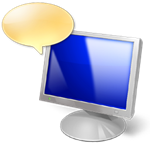Accessibility
We are committed to providing a website that is accessible to everyone.
We are always working to improve your user experience and the accessibility of our website.
If you experience any difficulty in accessing our website, please contact us.
My web my way
If you have problems accessing our website or using the internet, the BBC provides helpful guides that can give you more information.
Click here and it will take you the the BBC accessibility page
Update your browser
By using an up-to-date browser you will have more options to support you as you browse the internet.
We recommend the standard browsers below, you can click the links below to install them.
Once installed, each will bring its own selection of accessibility options and may allow further options via the use of plug-ins. For more details see the Accessibility page for each one:
Text fonts
Depending on your browser, you can override all fonts on the site to one that is easier for you to read.
Guides here:
Enlarge your view
You can activate the browser zoom via these keyboard shortcuts
Options on your computer
To zoom your entire computer screen
Apple Mac and Windows operating system both contain options to enlarge your view of your screen
Make your computer read the website aloud
NVDA (NonVisual Desktop Access) is a free screen reader for computers running on the Windows operating system.
The latest version can be downloaded for FREE here (on this page you may be asked for a voluntary donation, if you do not wish to donate, click "skip donation this time")
Microsoft Windows Narrator is available on most Microsoft operating systems and reads text on the screen aloud. To find out more and how to enable it on your computer, please click here
Control your computer with your voice
Apple Mac and Windows operating systems both provide ways to control your computer with voice recognition. The BBC provide a guide to switching on voice recognition across the different versions but settings are different again if you are using Apple OS X
My computer my way
AbilityNet have more guides on the different accessibility features built into your desktop PC, laptop, tablet or smartphone.
It can help with four areas that might cause you problems:
- Vision - help with seeing your screen
- Hearing - help with sounds and audio
- Motor - help with keyboard and mouse difficulties
- Cognitive - help with reading, spelling and understanding








